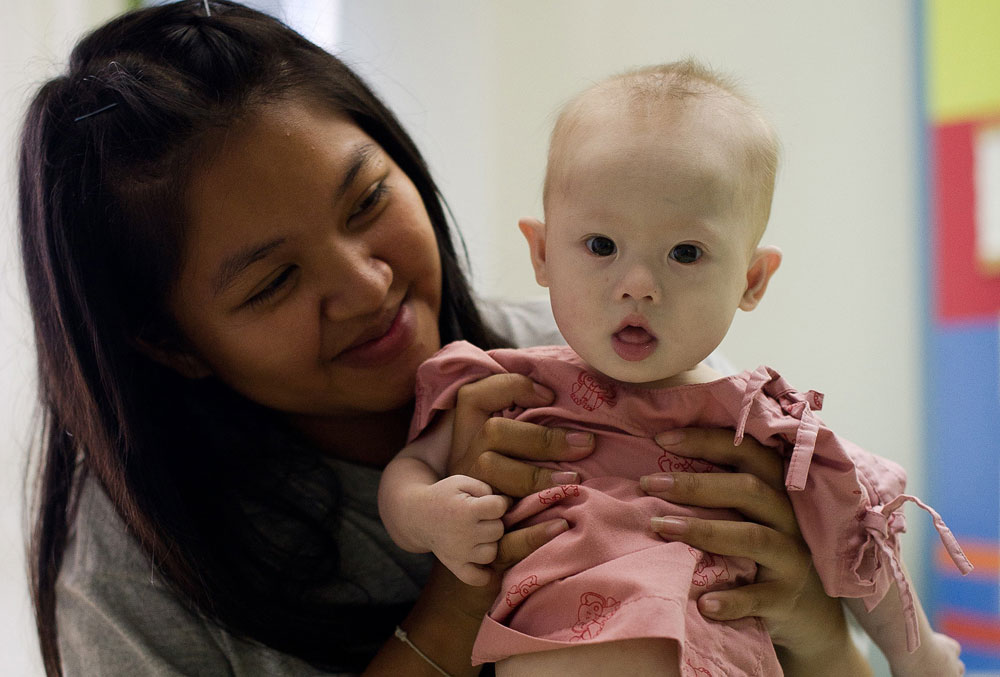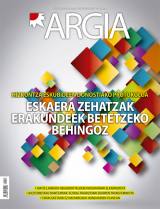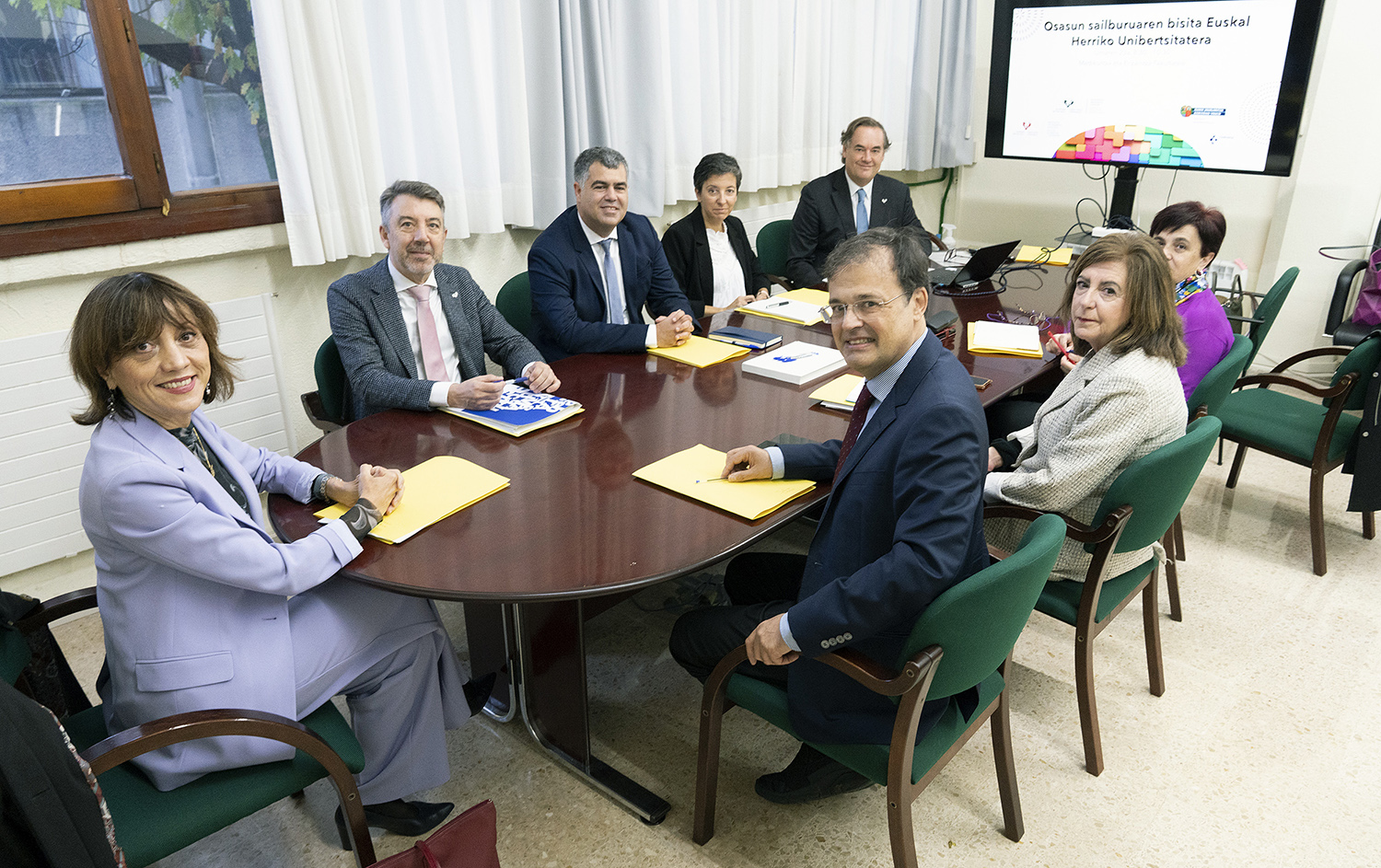The bodies of the poor in the cannibal market for the welfare of the rich goods
- Rental pregnancies, organ trafficking, biobanks... A new slavery is spreading, the proletariat of the bodies, in which the poorest part of humanity is forced to sell their bodies so that the richest people live healthy, all with the help of cutting-edge medicine and with the intervention of doctors who have thrown the famous oath of Hippocrates into the trash: “First of all, do no harm.”

Little Gammy emerges as a lucky evil. Born in Thailand in 2013 in the rented womb of Pattaramon Janbua, her Australian shoppers David Farnell and Wendy Li took Pipah, Gammy's twin sister, with her. Gammy has down syndrome and her genetic parents say they didn't pay as much money to go home with an abnormal child. The news spread in 2014 when the young woman hired by mother Pattaramon went to the press to ask for help, as they had no money at home to keep Gammy. Pipah is a twin girl living in Australia with her legal parents.
This is the story of French physician Jean-Daniel Rainhorn who, along with other experts, has published “The new cannibal market: Globalization and its transformation into human body merchandise”, which brings together the materials presented at the Symposium on the Commercialization of the Human Body held in Geneva, Switzerland, in 2014. The book analyses in detail the renting of women's womens, the theft of doctors to other countries, the sale of body parts, the business of human tissue banks...
These new markets, says Dr. Rainhorn, have been strengthened by the demand and supply of human body parts. This has influenced the advancement of new technologies in medicine, neoliberalism, globalization and the Internet. In this great wheel is essential medical intervention, as Rainhorn denounces, the betrayal of “doctors who have forgotten the oath of Hippocrates”.
In an interview given to the newspaper Le Monde, Berlusconi stressed that international institutions do not know exactly this new cannibal market, since the gigantic business that puts the bodies of the poor at the service of the health or well-being of the rich is working both inside and outside the law and largely in the field of criminality.
Data to learn how the rent of female tenants has increased: In 2014 alone 5,000 children were created in India, which meant moving a turnover of 2 billion euros in the country, according to figures from local employers. In 2008, 1,400 children were counted and in five years the number of babies in California doubled, where the legal number of babies for rent is legal.
With regard to the measurement of organ trafficking, the WHO estimates that 66,000 kidneys were introduced in 2005, between 10% and 20% illegal, which is more than 6,000. As documented, kidney trafficking is carried out among Syrian refugees in India, Pakistan, China and Lebanon. Manila (Philippines) is known as the “Monocular Island” chabolery, and so many men live there with one.
As for biobanks, in explaining the ovarian market, Rainhorn always says that Barcelona is the most important capital of Europe, that campaigns are carried out to collect eggs as the most common – with 800 euros – between university girls and then in vitro fertilization is carried out for women from all over the world.
Research sponsored by the WHO does not forget the theft of doctors. There are countries that, after spending a lot of money from their families and their states on the training of their doctors, are taken by the rich, when they are so necessary in their own countries of origin. One example: In Britain, recognised by the public health service, 26 out of every 100 doctors operating in 2015 came from countries outside the OECD.
How much? What about the child?
Today, the human body is sold by fragments and can be purchased. Often, within the law. Renting a uterus in India or California is legal, making legal the selection of biological parents and mother for rent by catalog, to buy the child for 120,000 dollars.
But what is legal and how far? In the vaccination of organs, it has been seen, in the words of Rainhorn, that the organ that is going to be legally incorporated into the recipient has often been illegally torn off to another. In addition to the law, there is justice: when there is such a sale, traders are always the weakest. In India, studies show that 83 per cent of the people who have sold an organ are women, the poorest.
“We have before our eyes a new slavery, the proletariat of the body, in which a part of humanity has to sell its body for others to live.” And like any commodity, including labour, the price is regulated by demand and supply. Der Spiegel has just published that in the Syrian refugee camps in Lebanon the price of the kidney has fallen from 3,000 to 700 euros. Just as the rates of those forced to practise prostitution are lower, sellers are so in need...
The figures collected in Geneva are not supplanted, but can be found more up-to-date on the Havocscope website that wants to be the database of the global black market. See kidney prices, for example. On average in the world, the purchaser of a kidney has paid 150,000 dollars, while the seller has charged 5,000. In China you can buy 27,500 euros, in Egypt 20,000, in Thailand 10,000... There is also data from middlemen commissions, there is not much mystery, they are known by those interested in buying.
But Rainhorn and other experts also distrust the hundred banks that are offered for free donation. “The point is that what you give for free then companies sell it. There is a European human tissue bank, for example, which is the supplier of all armies and has already been paid. But it’s not worth scanning, because things will get worse.” And it refers to gene biobanks, which sell genome sequences, which allow you to change the physical characteristics of children of the future, like choosing hair colors or eyes.
Are we approaching this world that Yazuo Ishiguro drew in 2005 in the novel “Never Let Me Go” [Never Let Me Go] in which they care for cloned children in a boarding school and then incorporate their organs into normal children? The study “New Cannibal Markets” aims to mobilize such groups of indignation among citizens, so that the issue is taken seriously by international organizations and is specifically mentioned in the Human Rights Pact.
Jean-Daniel Rainhorn: “The rules of the game are changing, health technologies have radically changed the relationship between the patient and the doctor. The dehumanization of society has reached medicine”.
Punto Bobo liburuaren irakurketan murgilduta, Itxaso Martin Zapirain egilearen Eromena, Azpimemoria eta Isiltasunak Idazten ikerketa lanean sentitu nuen egiazkotasun eta maila etikoarekin egin dut berriz ere topo. Eta hortaz, hara bueltatu. “Oihu izateko jaio zen isiltasun... [+]
La bajona kolektibo kide Heiko Elbirak salatu du psikiatriak zisheteroarautik aldentzen diren erotikak kontrolatu nahi dituela.
Down sindromea eragiten duen 21. kromosomaren kopia gehigarria ezabatzea lortu dute ikertzaile japoniar batzuek laborategiko giza zeluletan. Erabilera klinikotik urrun dagoen arren, sindrome hori tratatzeko aukera berri bat ireki du esperimentu honek. PNAS Nexus aldizkarian eman... [+]
Washington (EE.UU. ), 1807. The US Constitution banned transatlantic slave trade. This does not mean that slavery has been abolished, but that the main source of the slaves has been interrupted. Thus, slave women became the only way to “produce” new slaves.
So in 1845, in... [+]
What blew me a lot is the way some doctors talk to the patient. They talk to us about pain as if we were children. As I have had two kidney transplants, I know what I mean: among other things, I have had a tube inside my penis. Because of the anesthesia, I didn't feel how I got... [+]
Today I have come to start with my words.
Four years!
I've taken four years to get my life back.
Four years also lived to flee the prison.
Four years… In silence… Just… Leaving aside the life of the past… To understand the functioning of my different mind and to... [+]
Lack of good doctors for a high middle grade policy. This policy has ensured that very few young people have reached the medical career and the MIR has further removed people from that career.
And there are few Basque doctors because the knowledge of Euskera in this profession... [+]
Rainy red mornings, red blondes. Little with the Aramaio train and soon wind turbines will be installed, destroying the mountains. The wind of the river, from Vitoria, leads us along the same path: the river. Infrastructures yes, all we want, but not socio-health care... [+]




















